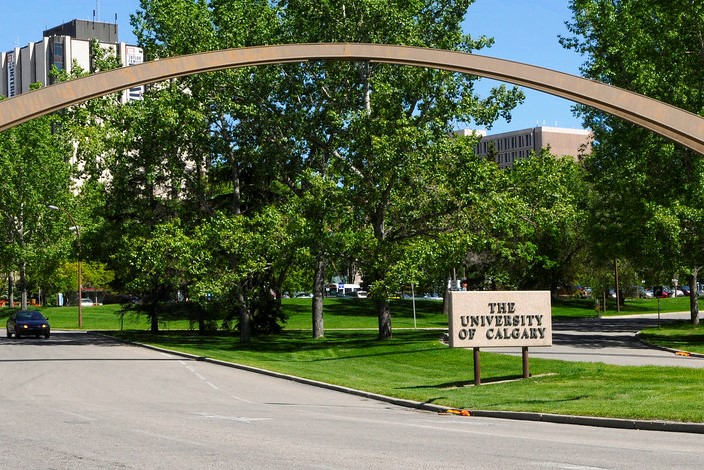
Alberta’s post-secondary institutions have been hit with back-to-back cuts by the UCP government. After the MacKinnon report was used to greenlight attacks on public education in 2019, operational funding for post-secondary was drastically cut partway through the academic year, followed by a 6.3 per cent cut in 2020, and a further 5.4 per cent cut in 2021. As a result, tuition has risen sharply across Alberta and institutions have been hemorrhaging staff throughout the province. Deeper structural changes to post-secondary institutions are occurring, including “academic restructuring” at the University of Alberta and the privatization of SAIT’s bookstore and power plant. The University of Calgary is also making moves to privatize bookstores at the main and medical campuses, despite the objection of staff and students.
Information about the privatization scheme leaked to the University of Calgary campus community on Reddit. Prior to this, students and staff had not been consulted or informed. In an article published in campus newspaper The Gauntlet, student leaders and union representatives raised concerns that a privately run bookstore would lead to an increase in the cost of textbooks and other course materials. They are also apprehensive that the minimal programs to alleviate the cost of textbooks (rental programs, book loans, and free supply programs for disadvantaged students) would be discontinued. Unionized staff that run the bookstore worry that they will lose their current jobs—a convenient union busting move for the University of Calgary, which is currently in collective bargaining with AUPE Local 52. These concerns are in line with what has happened at other campus bookstores that have recently been privatized, such as at Concordia and SAIT. Both campuses operated their own bookstores which are now run by a private American-based company called Follett.
Follett is the only company being considered to take over operations at the University of Calgary and has a particularly dubious track record of exploitative behaviour. These practices are quite lucrative for Follett—their estimated revenue in 2020 was $3.1 billion. Follett is facing class-action lawsuits due to the practice of “inclusive access programs’,’ where students are automatically billed for their course materials when they sign up for a course. In some of their contracts, Follett is guaranteed to be the only retailer for course materials, and teachers are not allowed to discuss other places students may find the same items at a better price. Not content just to force students to buy from them, Follett further profits off of students by sharing their information with advertisers and third-party trackers.
Students and support staff at the University of Calgary are working together to fight this privatization. Actions began with petitions, a postering campaign, canvassing students, and mail blitzes. The aim of these original actions was to pressure university executives to meet with the Students’ Union (SU) and AUPE. Executives at the university were successfully pressured into meeting, but have been attempting to hold separate meetings with staff and students. University of Calgary executives committed to SU representatives that students will not be forced to purchase from the bookstore, the book-loan Program and the book buyback program will be maintained, and that costs for other materials sold at the bookstore will not rise unreasonably.
Despite this, the SU has been publicly skeptical of verbal commitments made to them, stating: “it remains unclear how the university would enforce these commitments and it’s worth asking why this hasn’t occurred at other institutions with Follett bookstores.” Bookstore staff have publicly refuted statements issued by VP of Finance and Services Linda Dalgetty. A boycott campaign has begun—students and staff are working with instructors to pledge a boycott of a privatized bookstore and are calling on the university to include protections against privatizing out services in their collective agreement with AUPE.
Solidarity between students and support staff at the University of Calgary is a very promising development, and a boycott campaign is a step in the right direction. However, bolder action will need to be taken to secure the future of post-secondary education in the province and to stop the UCP’s policies of austerity and attacks on education in general. The Students’ Union should begin organizing general assemblies for the student body to mobilize opposition to these plans and AUPE Local 52 should be holding union meetings, both preparing to escalate the conflict with demonstrations and strikes if necessary to oppose privatization and protect jobs.

